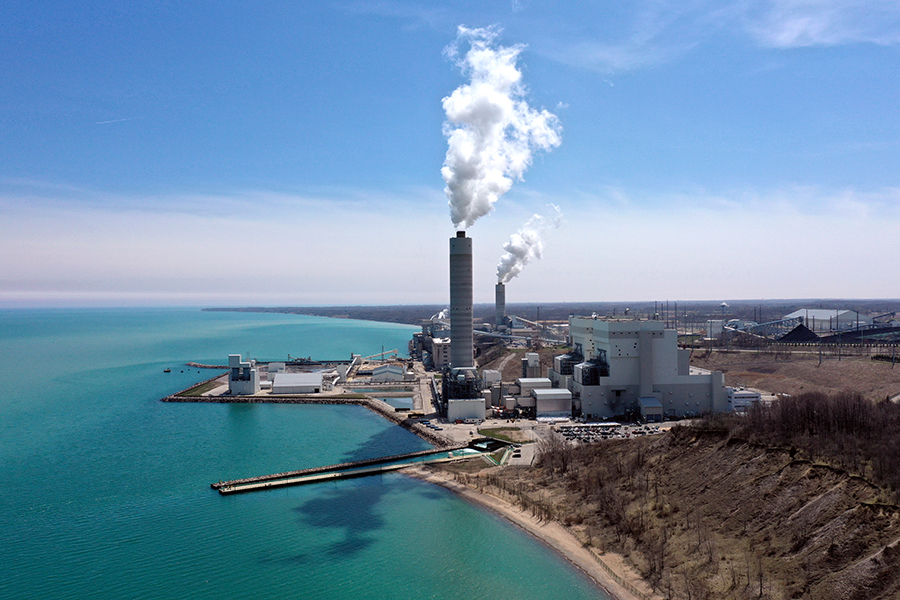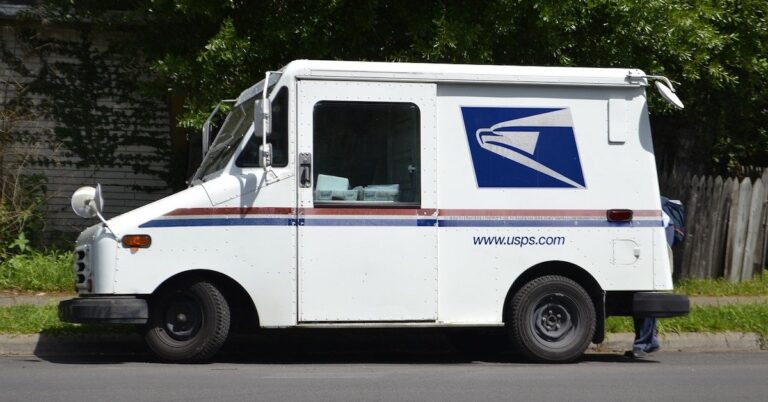This story was produced by Wisconsin Watch, a nonprofit, nonpartisan investigative reporting organization that focuses on government integrity and quality of life issues in Wisconsin.
- Download this story as a Word document
- Download the photos that accompany this story
- View the original story at WisconsinWatch.org
By Kari Lydersen, Energy News Network
A proposed rate increase by We Energies is facing pushback from community groups that say the Milwaukee utility is failing to meet its legal obligation to provide affordable power.
The 13% electricity rate increase would fund new utility-scale solar and natural gas generation. The rate case by We Energies’ parent company, WEPCO, is currently before the Wisconsin Public Service Commission.
State regulators are exploring whether the utility is earning unjustified profits, while ratepayer advocates say the rate hike would force some families to choose between paying rent, medical bills or other costs.
“Basically they are out of compliance — they’re not meeting the affordability requirement that’s set by state law,” said Antonio Butts, executive director of the community organization Walnut Way, which represents the Lindsay Heights neighborhood and is an official intervenor in the rate case.

Black and Latinx residents who have long disproportionately suffered the impacts of pollution from We Energies’ Oak Creek coal plant are especially frustrated that they are being asked to shoulder the cost of renewables and natural gas generation even as the coal plant is going to keep running longer than originally planned, through 2025, as We Energies announced in June.
Walnut Way and the environmental group Clean Wisconsin have refused to sign a settlement agreement among stakeholders filed on Oct. 3 as part of the rate case. Citizen Action of Wisconsin, the Sierra Club, and Wisconsin Health Professionals for Climate Action are also opposing the proposal, though they don’t have official stakeholder status in the proceedings.
Other advocacy groups agreed to support the proposal, including the Citizens Utility Board (CUB) — which supports the extension of low-income programs included in the proposal and a pilot program for income-based payments. And Renew Wisconsin supports metering changes that will facilitate distributed solar. The proposal also promises to securitize $100 million of debt from putting environmental controls on the Oak Creek coal plant, a move the Citizens Utility Board has long pushed for as it reduces the debt that will show up on ratepayers’ bills.
Labor unions, the sewerage district and Walmart also supported the proposal, because of promises on jobs and rates that benefit them. Citizens Utility Board Executive Director Tom Content said the group is upset that We Energies revised a previous proposal for an 8% electricity rate increase for residential customers — boosting that increase while lowering the increase for large industrial customers to 6.4%
Public hearings on WEPCO’s proposal were held in September and October. Public comments can be submitted online through Nov. 7. WEPCO asked the commission for an expedited public input process, so the rate case can be resolved by the end of the year.
Will WEPCO reap excess profit?
While CUB is pleased with the securitization and other provisions it describes as victories for low-income ratepayers, the organization is demanding WEPCO reduce the profits it reaps from investments including on three solar farms it plans to acquire. Content said that WEPCO receives a bigger share of profit from its investments than most utilities nationwide, a situation that is being examined as part of the rate case.
CUB has pointed to a recent study by the Energy Institute, which explains that utilities nationwide have overcharged customers by anywhere between $2 billion and $20 billion a year, guaranteeing profits to shareholders higher than the amount that would be needed to attract investment in their stocks. The study surmised that this has happened in part because state regulators are quick to grant increases in profit when the market is shaky, but regulators don’t reduce rates of return when shareholders are being overcompensated.
CUB has suggested that rates of return for We Energies and Wisconsin Public Service Corp., another WEPCO subsidiary covered in the rate case, be reduced from 10% to 9%.
“If CUB prevails, the size of the increase will be much lower — we have the potential to save tens of millions of dollars,” Content said.
WEPCO spokesperson Brendan Conway said this is only the second time in eight years that We Energies has requested a rate increase, and that “the average residential bill would remain well below the national average and in line with the Midwest average.”
“Of course, the investments we are making in a sustainable energy future are — under the Wisconsin regulatory system — recovered through customer rates,” Conway said.
$1 billion investment eyed
In its filing, We Energies says that between 2020 and 2023, it will spend about $1 billion on its transition from coal to natural gas and renewables. The cost includes acquiring a natural gas plant and an interest in the Badger Hollow II solar farm and two other solar and battery projects, called Paris and Darien.
The three solar projects are being developed by Invenergy and would provide hundreds of megawatts of clean power for customers of We Energies and central Wisconsin utility MGE. The Public Service Commission has not yet granted WEPCO permission to recover its investment in the Darien project.
Content said that solar is a good investment, including with ratepayer funds, but the share of profit the utility gets should be reduced — especially considering that it stands to benefit from continuing to run the coal plants.
“Solar for several years in a row has been the lowest cost of generation — that’s why utilities are moving so aggressively to implement solar,” Content said. “There are definitely cost savings from implementing solar, but whether utilities should keep profiting on old coal plants, and continue to earn profits that are far above the national average, wasting customers’ money — it’s excessive for customers to have to shoulder that.”
Wisconsin case poses difficult choices
CUB was pleased that the utility agreed to extend its bill forgiveness program for low-income customers, known as LIFT, through 2025; forgive late fees and other costs incurred during a shut-off moratorium during the pandemic; and develop a pilot program that would allow residents to pay a percentage of their income for energy. The utility also agreed to design a “bring your own device” demand reduction program similar to one being used by MGE. That would credit residents for using smart thermostats and other devices that lower energy use during peak demand times.
The rate case proposal also reduces the monthly fixed charge on bills, from $16 to $15 a month for We Energies customers and from $21 to $19 a month for Wisconsin Public Service customers. Walnut Way organizers say that while this helps, it’s not enough.
Lindsay Heights community organizer Maria Beltran, 50, is caring for two grandchildren; their father’s utilities have been cut off for two months, she said, as he’s been unable to pay bills but has an income too high for state energy bill assistance.
“It’s just a mess; it’s a cycle that goes on and on and on. If you’re the working poor you can’t pay these bills,” she said. “I’m on disability, I’m on a fixed income, we’ve gone through this pandemic, we’re still in one, and everything has gone up.”
Beltran, like Butts, called on We Energies to engage more directly with the community.
“We have a meeting every Tuesday at Walnut Way, if they can come out there and talk to the residents, once a month at the very least, to inform them of all the stuff that’s going on, not just when our energy is cut off,” she said.
The fact the coal plant will keep running adds injury to insult, as she and others see it. Beltran raised seven kids in a home close to the coal plant.
“We’re all asthmatic. I remember the air was garbage,” she said. “We have to have renewables,” but shareholders rather than residents should pick up the cost of the transition, she said.
Clean energy — but for whom?
Cesár Gumeta, 29, feels caught between the need for clean energy and the inability of many residents to pay for the transition.
“Every winter we see a spike (in bills) as it is — a rate increase will force us to choose between paying bills for energy, rent, food or my medications,” they said. “I have asthma — having fossil fuels, whether it’s coal or gas, really affects me. I have air quality alerts on my phone, and on days the air quality is bad, my sneezing and wheezing makes it difficult. The fact we’re still going to be dependent on fossil fuels is concerning. We see the effects of anthropogenic climate change in Wisconsin; we have more extreme weather events every single year.”
Gumeta, who has lived in Milwaukee for 22 years, notes that immigrants like them are especially impacted by both fossil fuel pollution and energy bill burden. They noted that more access to distributed solar would help on both fronts, though We Energies has also long backed policies that make rooftop solar difficult to access, as many advocates see it.
Much of “the labor force here is immigrants and undocumented people,” Gumeta said. “Whether it’s energy assistance or programs that help finance and resource solar and renewables for families … making sure everybody is taken into consideration is very vital.”
While Butts supports rapid decarbonization, he emphasizes that energy from a solar farm isn’t helping residents if their utilities are cut off because We Energies isn’t meeting requirements to provide affordable power. Making rooftop solar more accessible, meanwhile, could help people save on energy bills while also decarbonizing.
“You have billions going into solar farms — that same kind of investment could be made in solar on residential roofs across Milwaukee,” he said. “In Milwaukee we find more extraction going on than value being added” by the utility.
Energy inequity in Milwaukee
A 2016 analysis by the American Council for an Energy-Efficient Economy found that in Milwaukee the average white household pays 2% of its income to energy, while the average Black and Latinx families pay over 5%. One in four Black families in Milwaukee pays over 15% of its income to energy, the study found.
Meanwhile, a study by the Sierra Club showed how high energy burden is concentrated in certain neighborhoods with high Black and Latinx populations that are also disproportionately affected by evictions, and poor energy efficiency in homes in these areas mean that the households that are least able to afford high bills are actually paying significantly more for energy.
Those with an energy burden over 6% pay an average of $2,240 a year for energy with average household incomes of $32,000, the Sierra Club found, while those with lower energy burden pay an average of $1,930 a year but have an average annual income of $80,000.
Dr. Victoria Gillet, a physician and member of Wisconsin Health Professionals for Climate Action, said she feels like low-income residents are suffering because of the utility’s failure to invest in energy efficiency and clean energy much sooner.
The projected revenue gap “definitely could have been closed a lot sooner if they had been more intentional about bringing clean energy on,” Gillet said. “The rates are increasing so dramatically despite the fact that We Energies has very reasonable profit margins. It might feel justifiable if I trusted them to do responsible things with the money they are receiving, but I feel pretty much like anything that is in the best interest of public health they end up going back on it. I feel like it’s giving money to shareholders and not doing anything to serve the public.”
Butts feels like We Energies is pitting low-income residents against clean energy proponents, rather than committing to “co-create” an energy future with residents. But he said that We Energies will have no choice but to listen to residents in the future.
“We Energies executive leadership and shareholders should be aware the regulatory environment in Milwaukee is about to change. It is actually changing already,” he said. “It will no longer be business as usual in terms of the marginalization and discriminatory practices and lack of capital investment in communities where the majority of ratepayers are. Milwaukee has a voice — that voice is growing and it will be heard.”
Questions or comments about this article? Contact us at editor@energynews.us.



